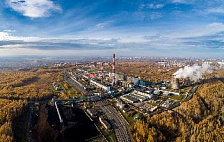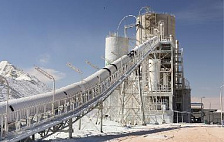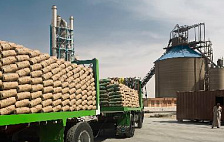Japan and the U.N.'s development agency signed an agreement Wednesday to build two "state of the art" rubble recycling facilities to help tackle mountains of debris left by Turkey's devastating February earthquakes.
The pilot projects will be built in southern Hatay and Kahramanmaras, two of the hardest hit cities among nearly a dozen shaken by a disaster that killed more than 50,000 people in Turkey and neighboring Syria, and saw over 300,000 structures destroyed or left uninhabitable due to severe damage.
The United Nations Development Programme (UNDP) says the more than 200 million tonnes of debris produced by the 7.8 magnitude temblor "dwarfs almost all previous natural disasters in the world," including Japan's 2011 quake and tsunami disaster, which generated about 31 million tonnes of rubble.
The new recycling facilities, the first of their kind built in the quake-hit region, will safely remove asbestos and other hazardous waste from the rubble, separate out scrap metal and other recyclable materials and crush cement for reuse as paving and building material.
Previous disasters show up that to 90% of building rubble can be recycled, while Japan reused about 81% of the debris left after the 2011 disaster, the UNDP said.
Wednesday's signing of the agreement, which will see Japan supply 700 million yen ($4.83 million) in funding, was attended by Takahiko Katsumata, Japan's ambassador to Turkey, and UNDP Resident Representative Louisa Vinton, along with Turkish officials.
"Recycled rubble can serve as a vital raw material for the massive reconstruction effort that lies ahead. And the longer we wait, the greater the risk that debris finds its way to inappropriate locations," Vinton said, according to a joint statement released Wednesday after the event at the Japanese Embassy in Ankara.
Ambassador Katsumata added: "There is a concern that the rubble contains harmful substances such as asbestos, and poses health hazards [to] nearby residents and those who will do the debris removal works in the future."
Since the earthquakes earlier this year, hundreds of thousands of truckloads of rubble have been moved to temporary storage sites, where steel rebar is already being stripped from concrete debris.
The recycling project, expected to be complete within a year, will see the construction of two processing facilities equipped with industrial-scale crushers, magnetic separators and belt conveyors, along with mobile crushers to handle debris at smaller storage sites.





